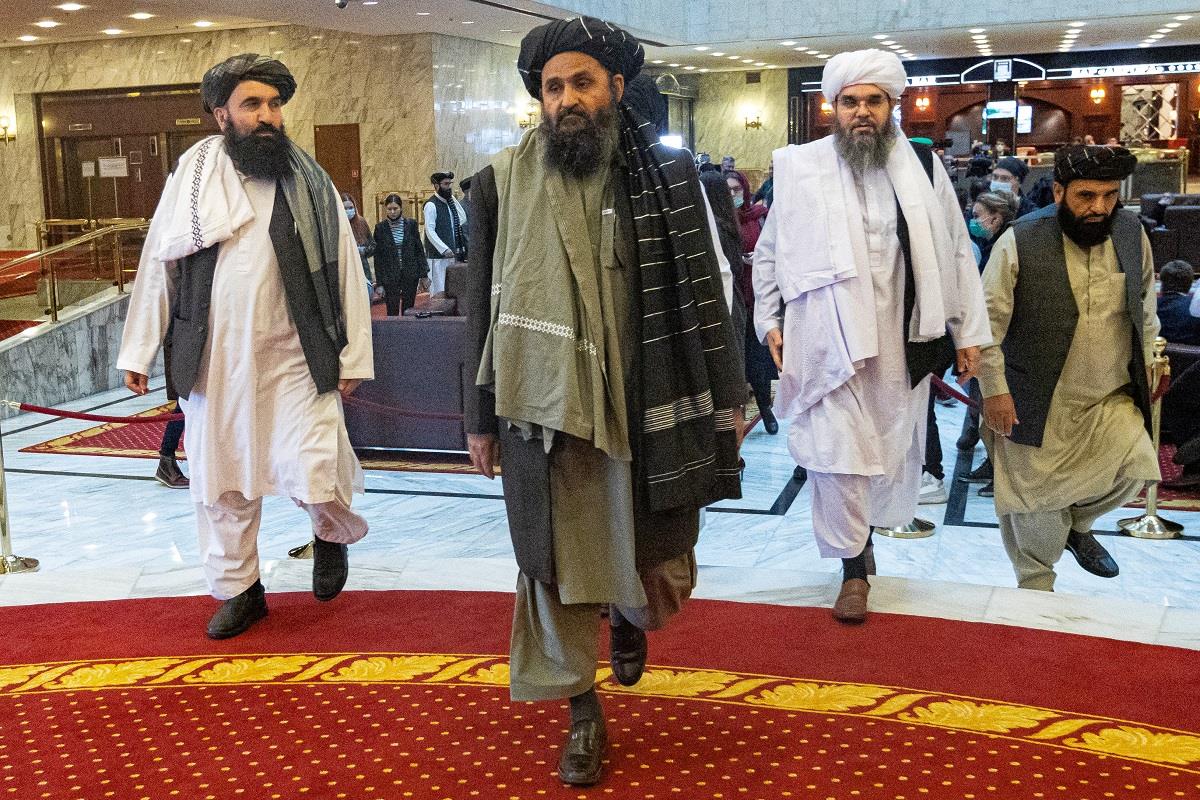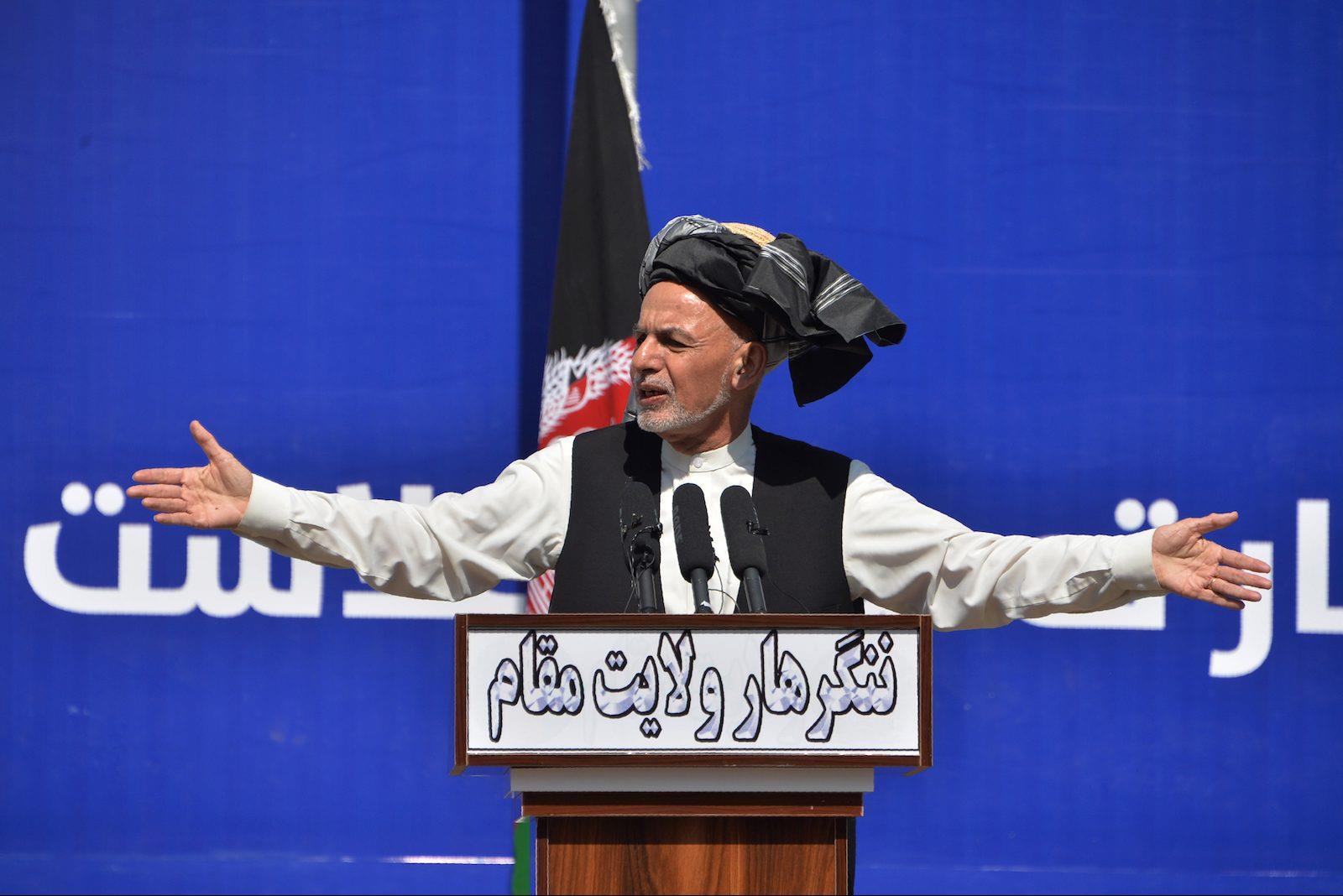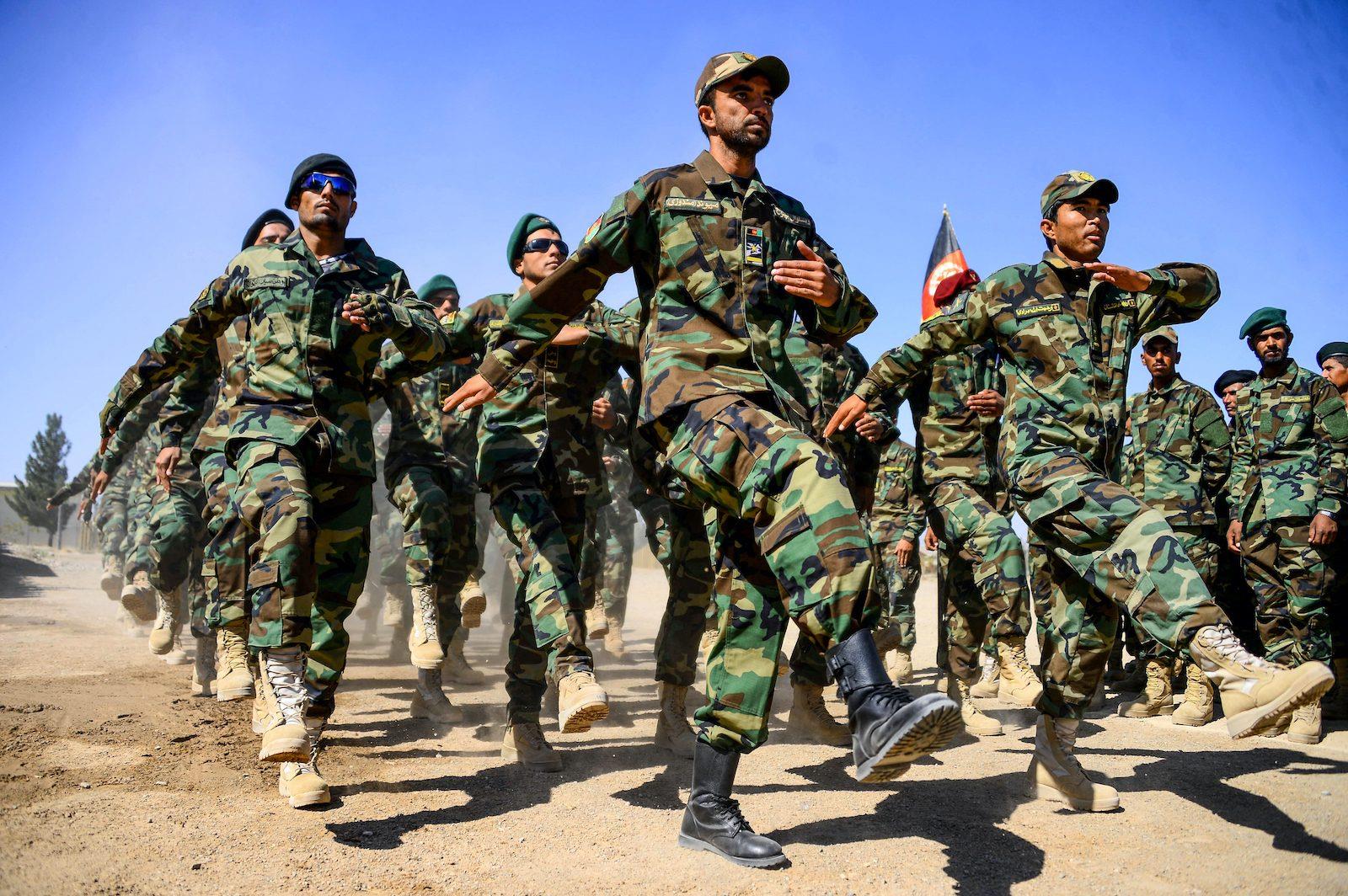
Why Biden won't likely leave Afghanistan
(MENAFN- Asia Times) When US Defense Secretary Lloyd Austin made an unexpected stopover last month to Afghanistan, the announced trip underscored the unsettled state of American policy in the war-torn nation.
The US is obliged to withdraw by May 1 all of its remaining Afghanistan-based troops – estimated at around 4,500 according to recent revelatory reports – as per an agreement the Donald Trump administration reached with the Taliban in Doha, Qatar, in February 2020.
The Joe Biden administration is now mulling whether or not to uphold that agreement, which both sides claim the other has breached on various fronts, or extend America's troop presence to prop President Ashraf Ghani's elected and embattled government.
Recent US intelligence assessments predict the Taliban will walk over Ghani's national forces soon after a US troop withdrawal, a scenario that would abruptly end ongoing peace talks between the two sides and realign the region's geopolitics in favor of American adversaries.
The Biden administration has pressed both sides to urgently for a 'peace government' that would lead to constitutional reform and ultimately new democratic elections, a power-sharing proposal Ghani has so far resisted.
The US currently spends an estimated $4 billion per year to sustain Afghanistan's National Security Forces against the Taliban and to uproot remnant al Qaeda terror cells in the country. The US has spent over $1 trillion in the country since first invading in the wake of al Qaeda's 9/11 attacks on the US.
America's two-decade-old presence in the heart of Central Asia has long figured as a key determinant in the strategies of the region's other main actors, including not least Russia, China, Pakistan and India.

Taliban co-founder Mullah Abdul Ghani Baradar (center) and other members of the Taliban arrive to attend an international conference in Moscow on March 18, 2021. Photo: Alexander Zemlianichenko / AFP
Russia is already advancing plans to integrate a Taliban-led Afghanistan with its Eurasian Economic Union (EEU), an economic union of states located in Eastern Europe , Western Asia , and Central Asia .
John Sopko, the Pentagon's special inspector general for Afghanistan reconstruction, recently told a US House Representative committee that Ghani's government 'would probably lose the capability of flying any of its aircraft within a few months and, to be quite blunt, would probably face collapse' if the US withdrawals on May 1.
Spoko's testimony is likely to embolden the Biden administration's plans-in-the-making to keep US troops in Afghanistan until at least November, or until Kabul and the Taliban reach some sort of power-sharing political settlement that leads to eventual democratic elections.
Significantly, too, the Biden administration is showing signs of skepticism about its own recently pitched formula for intra-Afghan negotiations involving Afghanistan and a host of regional countries including Russia and China.
While America's various options – stay, go, or indefinite delay – all carry their own dangers and risks for the US as well as Afghanistan, the Biden administration clearly does not want a settlement or scenario that disproportionately favors the Taliban over Ghani's government.
Ultimately, the US seeks a settlement that allows for the inclusion of enough empowered political actors who will align with US policy, particularly vis-à-vis Russia, China and to a lesser degree Pakistan. The US must also consider the Afghan interests of its budding ally India and its concerns of China's growing influence in its regional neighborhood.
The recent surge in tensions between the US and China on the one hand, and the US and Russia on the other, has intensified the Biden administration's Afghan quandary.

Afghan President Ashraf Ghani gestures as he speaks during a gathering to assess the general security situation in Jalalabad on March 3, 2020. Photo: AFP/Noorullah Shirzada
US policymakers seem to understand that beating a retreat from Afghanistan, in the name of ending America's 'endless war', would leave Afghanistan open to the creation of a Russian and/or Chinese proxy state with the extremist and terrorism-prone Taliban on top.
Keeping Afghanistan in its axis through a political formula that includes pro-US political forces is thus immensely important for the US, particularly in the context of Biden's drive to win 'like-minded' Asian allies to counter and contain China's ever-rising regional influence
China and Russia clearly have their post-US withdrawal designs ready for Afghanistan. China's Foreign Minister Wang Yi recently spoke of plans to integrate the China-led Belt and Road Initiative with the Russia-led EEU.
That would potentially benefit nations like Afghanistan that geographically intersect both infrastructure-building, trade-promoting projects. A China and Russia-aligned Afghanistan would provide a useful direct territorial link connecting south, west and central Asia.
Both are already making overtures to Afghanistan, seen in both countries' 'vaccine diplomacy' towards Kabul.
Like Russia, China has also developed direct ties with the Taliban. In September last year, Beijing reportedly offered the Taliban sizeable investments in energy and infrastructure projects following a US withdrawal and a political settlement with Ghani's government.
A Pakistani intelligence official confirmed in an interview with the Financial Times that while China is keen to help to develop Afghanistan, it also seeks Taliban protection from anti-China Islamists known to be based in the country, including those with known links to its restive ethnic Uighur minority.
The fact that both Russia and China now accuse the US of violating the terms of its Doha pact with the Taliban shows how both are coming together to uproot America's military presence in Afghanistan.
Commentators in Washington are sounding alarm bells about this confluence of anti-US interests and calling loudly on Biden to review and at the least delay Trump's May 1 withdrawal obligation.

Afghan National Army (ANA) soldiers march during a ceremony at a military base in the Guzara district of Herat province on October 11, 2020. Photo: Hoshang Hashimi/AFP
If the US decides to prolong its military presence, as seems increasingly likely, it will push the Taliban to rethink its commitment to a deal that has resulted in a near cessation of attacks on US troops.
The Taliban has already warned the US that it will face consequences if it doesn't honor its agreed withdrawal deadline.
More significantly, US backtracking on its promised troop withdrawal could also motivate Russia and China to extend more diplomatic and possible military support to the Taliban – right when an end to America's 'endless war' was in sight.

Legal Disclaimer:
MENAFN provides the
information “as is” without warranty of any kind. We do not accept
any responsibility or liability for the accuracy, content, images,
videos, licenses, completeness, legality, or reliability of the information
contained in this article. If you have any complaints or copyright
issues related to this article, kindly contact the provider above.


















Comments
No comment